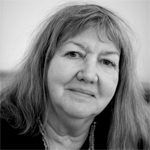The Pasteur Institute and its Global Network
hosted by Chris Gratien
During the late 19th century, Louis Pasteur and his disciples promoted a laboratory-based study of disease and contagion that led to what many call "the bacteriological turn" and reshaped public health in France and beyond. In this episode, we sit down with doctor, philosopher, and historian Anne Marie Moulin to talk about the history of the Pastorians and the early establishment of Pasteur Institutes in the Ottoman Empire and North Africa. We explore the role of the Ottoman Empire in the creation of the Pasteur Institutes and their global network, and we consider the relationship between medicine and religion, politics, and colonialism in North Africa and the Middle East.
This episode is part of an ongoing series entitled "History of Science, Ottoman or Otherwise."
Stream via SoundCloud
PARTICIPANT BIOS
 |
Anne Marie Moulin is a doctor with decades of experience in the fields of medicine and public health and emeritus director of research at CNRS in Paris. In addition to her research in the fields of immunology and tropical medicine, she has published widely on the history of science and medicine in France, the Middle East, and North Africa.
|
 |
Chris Gratien holds a Ph.D. from Georgetown University's Department of History and is currently an Academy Scholar at the Harvard Academy for International and Area Studies. His research focuses on the social and environmental history of the Ottoman Empire and the modern Middle East. He is currently preparing a monograph about the environmental history of the Cilicia region from the 1850s until the 1950s.
|
CREDITS
Episode No. 286
Release Date: 4 December 2016
Recording Location: Paris, France
Editing and production by Chris Gratien
Sound excerpts: from archive.org - Katibim (Uskudar'a Gider iken) - Safiye Ayla; Harmandali - Recep Efendi, Cemal Efendi; from Excavated Shellac - Lili Labassi - Mazal Haye Mazal
Special thanks to Kara Güneş for allowing us to use the composition "Istanbul" in the intro music
Additional thanks to Seçil Yılmaz
SELECT BIBLIOGRAPHY
Moulin, Anne Marie, and Yeşim Işıl Ülman. Perilous modernity: history of medicine in the Ottoman Empire and the Middle East from the 19th century onwards. Istanbul: The Isis Press, 2010.
Moulin, Anne Marie. Le médecin du prince: voyage à travers les cultures. Paris: Odile Jacob, 2010.
Moulin, Anne Marie. 1996. "Tropical Without the Tropics: The Turning-Point of Pastorian Medicine in North Africa". Warm Climates and Western Medicine : the Emergence of Tropical Medicine, 1500-1900.
Moulin, Anne-Marie. n.d. "The Pasteur Institutes between the Two World Wars: The Transformation of the International Sanitary Order". International Health Organisations and Movements, 1918-1939. 244-265.
Gallagher, Nancy Elizabeth. Medicine and Power in Tunisia, 1780-1900. Cambridge: Cambridge University Press, 1983.
Latour, Bruno. The pasteurization of France. Cambridge, Mass: Harvard University Press, 1988.
Pelis, Kimberly Ann. Pasteur's Imperial Missionary: Charles Nicolle (1866-1936) and the Pasteur Institute of Tunis. Ann Arbor, Mi: UMI Dissertation Services, 1995.








Comments
Post a Comment
Due to an overwhelming amount of spam, we no longer read comments submitted to the blog.